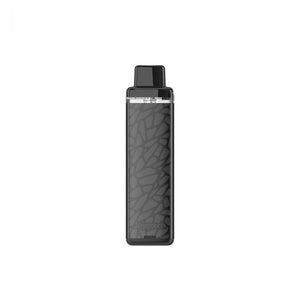Does Vape Have Calories? What Science Says

Does Vape Have Calories? What Science Says
Vaping is getting more popular, with over 3 million UK adults now using e-cigarettes. Many are wondering if vape juice has calories. The ingredients in e-liquids, like Propylene Glycol (PG) and Vegetable Glycerin (VG), might affect the calorie count. It's important to know the science behind this.
Scientists are still studying how vaping affects calories and health. They aim to give a clear view of vaping's impact on weight and health. This is especially key for those watching their weight or worried about vaping's health effects.
Key Takeaways
- Vape juice, or e-liquid, does contain a small number of calories, primarily from the Propylene Glycol or Vegetable Glycerin base.
- Nicotine in vape juice can act as an appetite suppressant, potentially leading to weight fluctuations if vaping habits change.
- The caloric content of e-liquids is unlikely to contribute significantly to weight gain, as the number of calories is relatively low.
- Vaping does not burn a significant number of calories through the physical act itself, and the effects of nicotine on metabolism are modest.
- Vaping may influence weight management in both positive and negative ways, depending on individual factors and the overall lifestyle approach.
Understanding Vaping: A Brief Overview
Vaping has become very popular in recent years. It's seen as a better choice than smoking traditional cigarettes. People use e-cigarettes to inhale and exhale vapour.
What is Vaping?
E-cigarettes have a battery, a heating element, and a tank for e-liquid. The e-liquid is made of propylene glycol, vegetable glycerin, nicotine, and flavourings. When heated, it turns into vapour that users inhale.
Common Ingredients in E-liquids
- Propylene Glycol (PG): A colourless, odourless liquid that helps create the "throat hit" sensation.
- Vegetable Glycerin (VG): A thick, odourless liquid that produces more visible vapour.
- Nicotine (optional): The addictive component found in traditional cigarettes, available in varying concentrations.
- Flavourings: A wide range of food-grade flavouring compounds, such as fruit, dessert, or menthol, that enhance the vaping experience.
Differences Between Vaping and Smoking
Vaping doesn't involve burning like cigarettes do. Instead, it heats e-liquid to create vapour. This makes vaping a potentially safer choice, as it avoids harmful tar and chemicals found in cigarette smoke.
Also, vaping has very few calories. This makes it a good option for those watching their calories in e-cigarettes or worried about vape and weight gain.
The Concept of Calories in Food and Drink
Calories are units of energy we get from what we eat and drink. They power our daily activities, from breathing to exercising. Knowing about calories and how they're measured is key to understanding vaping's effect on our health.
What are Calories?
Calories measure the energy in our food and drinks. They show how much energy our bodies use for different tasks. The balance between calories we eat and burn is important for keeping a healthy weight.
How Calories are Measured
Scientists use a bomb calorimeter to find out calories in food and drinks. This tool burns a sample and measures the heat. It also helps us understand the energy in calorie-free vaping and vape juice nutrition facts.
| Ingredient | Calorie Content |
|---|---|
| Vegetable Glycerin (VG) | 4.32 calories per gram |
| Propylene Glycol (PG) | Negligible calorie content |
| Nicotine | Minimal calorie impact |
| Flavourings | Potential for increased calorie intake |
The table shows the calorie content of common e-liquid ingredients. Knowing this helps vapers make better choices about their vaping and its calorie impact.
"Vaping generally has a negligible impact on calorie consumption, with the majority of the liquid being exhaled as vapour."
Do E-liquids Contain Calories?
E-liquids used in vaping do have calories, but they are very small. This is much less than what we eat and drink. The main parts of e-liquids, like propylene glycol (PG) and vegetable glycerin (VG), have a few calories per millilitre. The flavourings and nicotine add no calories at all.
Analysis of Propylene Glycol and Vegetable Glycerin
Propylene glycol has about 4.1 calories per gram. Vegetable glycerin has a bit more, at 4.32 calories per gram. But, since we inhale these liquids when vaping, our body doesn't absorb their calories like it does with food or drink.
Sweeteners and Flavourings in E-liquids
Adding sweeteners and flavourings to e-liquids adds a tiny bit of calories. Low-calorie vape juices with artificial sweeteners have even fewer calories. This makes them a good choice for those watching their vaping diet and calorie intake.
The Impact of Nicotine on Caloric Content
Nicotine, the main ingredient in e-liquids, has no calories. It might help with weight management by reducing hunger and affecting how our body uses insulin. But, vaping is not a safe way to lose weight because of the health risks.
The calories in e-liquids are very small. A puff from an e-cigarette has less than 5 calories. This is much less than many foods and drinks, making vaping a healthier choice than smoking or other unhealthy habits.
| Ingredient | Caloric Value |
|---|---|
| Propylene Glycol (PG) | 4.1 calories per gram |
| Vegetable Glycerin (VG) | 4.32 calories per gram |
| Nicotine | 0 calories |
| Sweeteners and Flavourings | Minimal calories, depending on the type used |
"Vaping is not likely to significantly contribute to daily calorie intake due to the inhalation of the vapor instead of ingestion."
Scientific Studies on Vaping and Calories
Research on vaping and calories is still in its early stages. But, what we know so far is that e-liquids have very few calories. A study by Columbia University found that a vape cartridge has about 20 calories. This is much less than what you find in food and drinks.
Overview of Key Studies
Scientists have looked into what's in e-liquids, like propylene glycol (PG) and vegetable glycerin (VG). They found that these ingredients don't add many calories when you vape them. This is because they aren't broken down in the body like food is.
Also, many e-liquids use artificial sweeteners like sucralose or neotame. These sweeteners add flavour without extra calories. Plus, e-liquids are often gluten-free and vegan-friendly because they're made from plants.
Findings Related to Calories in E-liquids
- One gram of vegetable glycerin has about 4 calories when eaten. But, when you vape it, these calories aren't used by the body.
- Disposable vapes and regular ones have very few calories. This is because they contain vegetable glycerin and flavourings that you breathe in, not swallow.
- Sweeteners in vape juices, like sucralose and neotame, make things taste good without adding many calories.
- Some people might lose weight from vaping because nicotine can help you feel less hungry. But, vaping is not a good way to lose weight.
Vaping might not have a big impact on your calorie intake right away. But, scientists are still studying how it affects your metabolism and weight over time. They want to understand more about vaping's effects on your health.
"The caloric content of e-liquids is relatively insignificant compared to the caloric intake from food and other beverages. However, the long-term effects of vaping on metabolism and weight management require further research."
Health Implications of Vaping
Vaping might not directly affect how many calories you eat. But, it can change how your body works. Nicotine in vape liquids can make your heart beat faster and your metabolism go up. This means you might burn a few more calories. Yet, vaping's effect on calories is small compared to what you eat and how active you are.
Comparison of Vaping and Caloric Intake
Research shows vaping could affect blood sugar levels. Early studies found blood sugar might rise by up to 34% in three months. This shows we need more studies to understand vaping's effects on metabolism. Vaping's health risks go beyond calories, including lung damage and symptoms like COPD.
Effects of Vaping on Metabolism
- Nicotine in vape liquids can make you feel less hungry, leading to temporary weight loss.
- Nicotine can also slightly boost metabolism, resulting in a minor increase in calories burned.
- However, individuals may experience weight gain after quitting vaping due to increased appetite.
- Overall, weight gain related to vaping is more likely due to changes in lifestyle or eating habits rather than the direct caloric impact of vaping.
| Statistic | Findings |
|---|---|
| 2019 English study | Potential 14% increase in obesity rates in the United States as smoking rates have declined. |
| 2016 study | 13.5% of adult e-cigarette users aimed to manage weight. |
| 2022 review | Majority of studies reported a reduction in appetite or body weight with vaping CBD. |
Vaping might have some effect on metabolism and weight management. But, its overall impact is small. For effective weight control, focus on a balanced diet and regular exercise. These lifestyle choices are key for those worried about vaping's health effects.
Vaping and Weight Management
The link between vaping and weight control is not straightforward. Nicotine in vape juice can help suppress hunger and boost metabolism, aiding in weight loss. Yet, switching from smoking to vaping might lead to weight gain due to changes in eating habits.
Can Vaping Help Weight Loss?
Studies suggest nicotine can cut down on hunger and food intake, helping with weight loss. A 2022 review noted that nicotine also speeds up fat breakdown and metabolism. Some people use sweet vape flavours to curb cravings for sweets while fasting, a 2020 study found.
Potential Risks of Vaping for Weight Gain
A 2019 study in England showed 1 in 22 vapers use it for weight control, and 1 in 50 for meal replacements. Yet, a 2021 UK study found a 4.8 kg weight gain in the first year after switching to vaping. This indicates vaping's short-term benefits on appetite and metabolism but warns against it as a long-term weight loss method due to nicotine's health risks.
Vaping's calorie content is very low, but the act of vaping might encourage more snacking and weight gain. This is because vaping mimics eating, leading to increased food intake in some.
In summary, vaping might offer short-term benefits for appetite and metabolism. However, it's not a reliable way to lose weight long-term. A balanced diet and regular exercise are better for maintaining a healthy weight than relying on vaping.
Debunking Myths Around Vaping and Calories
Many people think vaping leads to weight gain. But the truth is far from it. It's key to know the facts about vape juice calories.
Misconceptions About Caloric Content
Some believe vape juice's sweet flavours mean it's full of calories. But most e-liquids have almost no calories. A 5ml serving has about 10-15 calories, which is very little.
Propylene glycol (PG) and vegetable glycerin (VG) have a few calories per gram. But the amount you get from vaping is tiny. A 30ml bottle of e-juice has up to 60-90 calories, much less than a pack of cigarettes.
The Truth About Flavoured E-liquids
Vape juices come in many flavours, from desserts to fruits. But these flavours don't add many calories. They're in such small amounts that they don't affect your calorie intake.
Vaping sweet or dessert-flavoured e-liquids doesn't make you gain weight. They don't have sugar or many calories. The sweetness you taste comes from the flavours, not extra calories.
It's important to know the truth about vaping and calories. Vaping can be enjoyed without worrying about weight gain or calories, as long as it's done in moderation and as part of a balanced lifestyle.
Vaping Regulations and Labelling
The UK is keeping up with vaping's growing popularity by setting new rules. These rules aim to keep vaping products safe and of good quality. They mainly focus on the devices and what's in them, but there's still talk about showing calorie info on labels.
UK Regulations on Vaping Products
In the UK, there's no need to list calories on e-liquid labels yet. The main focus is on safety, quality, and what's in the products. For example, vape tanks can't hold more than 2ml, and e-liquid bottles can't be over 10ml. The nicotine in them can't be more than 20mg/ml.
Also, the UK bans some ingredients in vaping products because of health worries. These include diacetyl and vitamin E acetate. Plus, the packaging must be safe for kids and have the right health warnings.
Importance of Ingredient Transparency
Even though vaping products usually don't have many calories, knowing what's in them is key. People should be able to find out what's in their e-liquids easily. This helps them choose what they like and what's good for them.
Many makers of vape juice already list what's in their products. They tell you about sweeteners and flavourings. This helps users spot allergens, avoid animal products, and know what they're vaping.
| Ingredient | Typical Caloric Content |
|---|---|
| Propylene Glycol | 0 calories per gram |
| Vegetable Glycerin | 4 calories per gram |
| Nicotine | 0 calories per gram |
| Flavourings | Varies, often negligible |
As vaping grows, so will the rules. We might see more focus on clear and honest labels. This will help people make better choices about vape juice nutrition facts and low-calorie vape juices.
Experts' Opinions on Vaping and Calories
Health professionals agree that vaping has a very small caloric impact. Dr Emily Clarke, a respiratory specialist at King's College London, stresses the need to understand vaping mechanics. This is to accurately assess its health and calorie implications.
Perspectives from Health Professionals
Dr Clarke says, "Nicotine, and thus cigarettes, do not contain calories. Some e-cigarette liquid flavors may have a few calories from flavouring agents. But overall, vaping's caloric intake is very small compared to smoking."
Many health experts agree. They see vaping's potential to suppress appetite as not enough to outweigh its health risks.
Insights from Nutritionists
Nutritionists say vaping has a very small effect on calorie intake. But it's not a good way to manage weight. "Vaping is not a healthy or effective way to control one's weight," says leading nutritionist, Sarah Williams.
"The negative health effects of vaping are much bigger than any appetite suppression benefits. For weight management, a balanced lifestyle is best. This includes a healthy diet and regular exercise."
| Statistic | Value |
|---|---|
| Percentage of e-cigarettes or vape pens users who are concerned about the calorie content in vaping | 17% |
| Ratio of individuals believing the myth that vaping contains calories compared to those who are aware that it does not | 3:1 |
| Percentage of e-liquids that contain flavorings as part of their composition | 95% |
| Frequency of individuals who associate flavorings in e-liquids with calorie content | 78% |
Many vapers worry about vaping's caloric content, but most don't know it's very small. The use of flavourings in e-liquids often leads to wrong beliefs about their calorie contribution.
The Role of Lifestyle in Vaping and Caloric Impact
Understanding the link between vaping and calories requires a full health view. Diet, exercise, and lifestyle choices are key to managing weight and health. Experts say to focus on balanced eating and exercise, not just vaping for weight control.
How Diet and Exercise Influence Vaping Effects
Activities like gardening and walking can help with health and weight, even with vaping's small calorie effect. It's important to have a balanced lifestyle with healthy meals and exercise. This is better than just looking at vape juice calories.
The Importance of a Balanced Lifestyle
- Approximately four calories per gram are found in the ingredients of vape juice.
- A 10ml e-liquid bottle contains around forty calories, while a disposable vape contains approximately eight calories.
- Vaping is considered 95% less harmful than smoking cigarettes, according to Public Health England (PHE).
- Nicotine has been identified as an appetite suppressant and reduces body weight, according to research conducted in 2021.
Vaping doesn't directly affect weight, and vape juice calories are very small. The real focus should be on a healthy lifestyle with good food and exercise. This is more important than vaping's calorie impact.
"Vaping does not have a direct impact on weight, and the calories in vape juice are negligible. The key is to focus on a balanced lifestyle that promotes overall health and well-being."
By taking a holistic health approach, people can manage their weight and health well. This doesn't rely on vaping alone. A balanced diet, exercise, and responsible vaping can lead to lasting health and wellness.
Alternatives to Vaping for Caloric Control
Vaping is getting more popular, with over 3 million adults in the UK using e-cigarettes. This raises questions about its effect on weight and calories. While vaping might not harm a balanced diet, there are better ways to control weight and calories.
Exploring Non-Vaping Options for Quitting
There are healthier ways to quit smoking or vaping. Options include nicotine patches, gum, or lozenges, and support groups. These help tackle nicotine addiction without adding calories.
Healthy Habits to Replace Vaping
Healthy habits can help quit smoking or vaping and manage weight. Regular exercise, mindful eating, and stress management are key. Resources like Smokefree.gov and the NHS offer support for quitting and adopting healthier habits.
Vaping has a low caloric impact, with each puff adding less than 5 calories. Yet, it's important to think about its overall health effects. By trying different options and making lifestyle changes, people can work towards their goals. This could be quitting smoking or managing weight with a vaping diet or low-calorie vape juices.
Conclusion: What We Know About Vaping and Calories
Summarising Key Points
Vaping doesn't directly add many calories to our diet. E-liquids, the main part of vape products, have almost no calories. A 40ml cartridge has about 200 calories. On average, a vaper uses about 1ml of e-liquid daily, which is just 0.02 calories from nicotine.
While nicotine in vape juice might affect our appetite and metabolism, its impact on weight is still unclear. Some studies suggest nicotine could help reduce appetite, which might help with weight loss. However, most research is on traditional nicotine products, not vaping.
Future Research Directions in Vaping Studies
As vaping becomes more popular, we need more research to understand its effects on calorie intake, metabolism, and health. Future studies should look into how vaping affects weight, especially for those quitting smoking. They should also explore if vaping can help with appetite control in people with eating disorders.
It's important to remember that the calories in vaping are not the main thing to worry about. We should focus on studying how vaping, nicotine, and weight interact. This will help us understand its impact on our health better.
FAQ
Does vaping have any calories?
E-cigarettes have very few calories compared to food and drinks. E-liquids contain propylene glycol and vegetable glycerin, with about 4 calories per millilitre. They also have small amounts of flavourings. But, a puff from an e-cigarette has less than 5 calories.
Can vaping lead to weight gain?
Vaping's effect on weight is complex. Nicotine might reduce hunger, but switching to vaping can cause weight gain. This is because of changes in appetite. Yet, vaping might also cut down on snacking. Still, it's not a good way to lose weight because of health risks.
Do flavoured e-liquids have more calories?
Flavoured e-liquids might taste sweet, but they don't add many calories. The sweetness of vape flavours doesn't mean they have a lot of calories. Most e-liquids have very little caloric impact.
Are there any regulations around calorie labelling for vaping products?
In the UK, vaping product rules focus on safety and quality, not calories. E-liquid makers must list ingredients, but they don't have to show calorie info. This is because vaping products have almost no calories.
What do health experts say about the caloric impact of vaping?
Health experts say vaping's calorie impact is small. They stress the need to understand how vaping works to judge its health and calorie effects. They suggest focusing on a balanced diet and exercise for health, not vaping for weight control.






